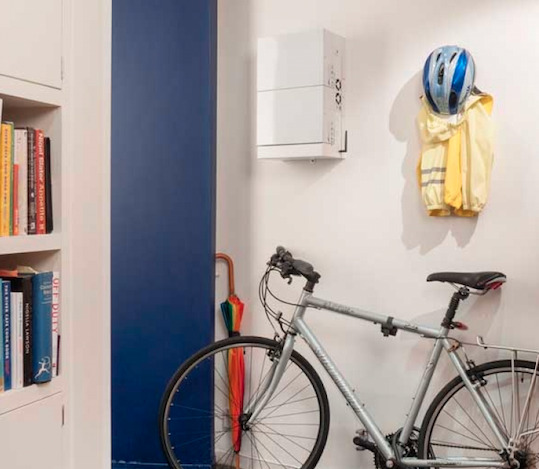A local energy system pilot on the UK’s south coast is to establish a virtual power plant (VPP) comprising, renewables, storage and electric vehicles that could save the country billions in network reinforcements.
Furthermore, the project holds the potential to cut domestic energy costs and slash emissions.
The Smart Local Energy System (SLES) project in Worthing and Shoreham-by-Sea, first unveiled earlier this month, will establish a VPP aggregating domestic solar and battery storage, electric vehicle chargers, a marine source heat pump, a grid-scale battery and air source heat pumps.
The operational capacities and benefits of those technologies will be blended together using VPP software developed by battery storage firm Moixa under the three-year project aimed at showcasing its potential.
Moixa and other consortium partners on the project, including Flexitricity, PassivSystems, Connected Energy and Flexisolar, have claimed that not only could it cut energy costs by as much as 10%, but a nationwide rollout of the technology could offset infrastructure upgrades worth as much as £32 billion by 2035.
Chris Wright, chief technology officer at Moixa, said the project would showcase UK expertise in an emerging global smart grid market.
“This project will show how solar panels, batteries and electric vehicles at home and in the workplace can play a vital role in creating a smart, low-carbon, energy system, cutting energy bills, saving the country billions and helping to meet our climate targets.”
The first step of the project will see £7.2 million of its budget used to create a VPP with around 2MW of capacity, becoming the first in the UK to use both batteries from different manufacturers and electric vehicles.
Solar panels and batteries will be installed in 250 council homes in Worthing and Shoreham, coupled with 100 schools and council buildings, from Autumn this year to combine a further 4MW of generation and 4.2MWh of battery storage. Installations of strategically-placed EV chargers will follow from early next year.
The GridShare platform is to use machine learning and AI technologies to tailor their performance and maximise savings, which is expected to boost savings on home energy bills to around 40%.
More than 1MW of spare capacity from those installations will be aggregated using Moixa’s GridShare platform and entered into flexibility markets, before an additional 1MW of capacity is added as soon as electric vehicles are fully integrated.
Once all of the technologies are deployed, the VPP will boast 7.65MW of generation and 17MW of storage capacity, which will be aggregated and traded by Flexitricity, with Moixa also retaining the right to trade its own flexibility directly.
Steve Read, West Sussex County Council’s director of Energy, Waste and Environment, said: “The lessons we learn will help the government to plan ahead and adapt our national energy system to the fundamental changes taking place. These include the growth in renewable energy supply, increasing demand for energy from electric vehicles and other innovations, and the challenge of balancing energy supply and demand.”






